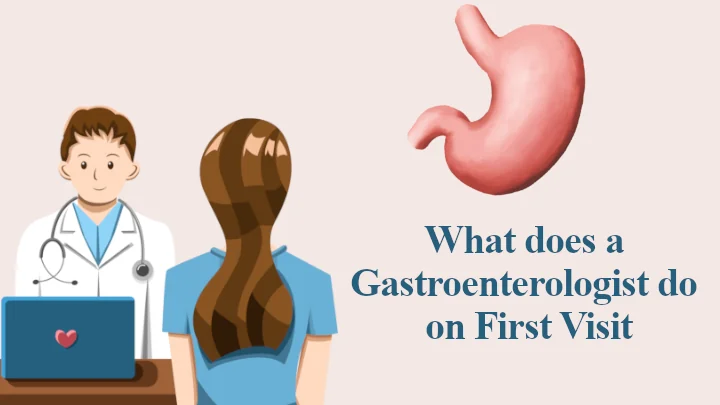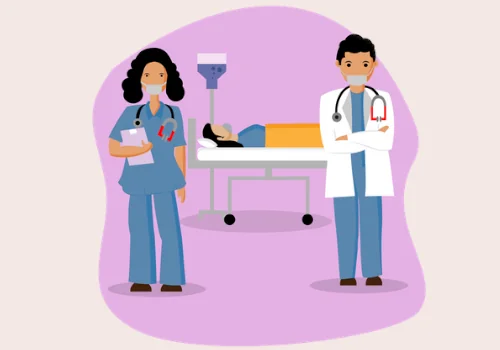What does a Gastroenterologist do on First Visit

Are you looking for What does a Gastroenterologist do on First Visit? Gastroenterology is a specialized field of medicine that focuses on the digestive system and its disorders. When you’re experiencing issues related to your digestive health, you may be referred to a gastroenterologist.
But what exactly can you expect during your first visit? This article aims to demystify the process and help you prepare for your first appointment.
In This Article
- Who is a Gastroenterologist
- What does a Gastroenterologist do on First Visit
- Gastroenterologist visit what to expect
- Symptoms to Report to a Gastroenterologist
- What Tests does a Gastroenterologist do
Who is a Gastroenterologist?
A gastroenterologist is a physician with dedicated training and unique experience in the management of diseases of the gastrointestinal tract and liver.
This includes conditions affecting the esophagus, stomach, small intestine, colon and rectum, pancreas, gallbladder, bile ducts, and liver.
What does a Gastroenterologist do on First Visit
Before your first visit, it’s important to gather all relevant medical records and test results related to your digestive health.
This may include reports from previous doctors, medication lists, and any imaging studies. You should also be prepared to discuss your medical history in detail, including any symptoms you’re experiencing and how they’re affecting your daily life.
Gastroenterologist visit what to expect

1. Initial Consultation
Your first visit will typically start with a detailed discussion about your health. The gastroenterologist will ask about your symptoms, medical history, lifestyle, and any medications you’re currently taking. This is your opportunity to ask any questions or express any concerns you may have.
2. Physical Examination
After the initial consultation, the doctor will perform a physical examination. This may involve checking your abdomen for any abnormalities, such as swelling or tenderness, which could indicate a digestive problem.
3. Diagnostic Tests
Depending on your symptoms and the results of the physical examination, the gastroenterologist may order further diagnostic tests. These could include blood tests, imaging studies, or endoscopic procedures, such as a colonoscopy or upper endoscopy.
Post-Visit: Understanding Your Results
After your visit, the gastroenterologist will review the results of any tests and develop a treatment plan. This could involve medication, lifestyle changes, or in some cases, surgery. The doctor will discuss this plan with you, ensuring you understand your diagnosis and treatment options.
Symptoms to Report to a Gastroenterologist
If you’re experiencing any of the following symptoms, it’s important to report them to a gastroenterologist:
- Abdominal Pain or Discomfort: Persistent or severe abdominal pain should not be ignored.
- Changes in Bowel Movements: This includes symptoms such as constipation, diarrhea, or changes in the color or consistency of your stool.
- Blood in Stool: This could be a sign of various conditions, ranging from hemorrhoids to more serious issues like colon cancer.
- Heartburn or Acid Reflux: If you’re experiencing frequent heartburn or a burning sensation in your chest after eating, it’s important to report this.
- Nausea or Vomiting: Persistent nausea or vomiting, especially if accompanied by other symptoms, should be reported.
- Unexplained Weight Loss: If you’re losing weight without trying, this could be a sign of a digestive disorder.
- Difficulty Swallowing: If you’re having trouble or experiencing pain when swallowing, it’s important to report this.
- Jaundice: The yellowing of the skin or eyes can indicate liver problems.
- Bloating or Gas: While these symptoms are common, if they’re persistent or severe, they could indicate a problem.
- Loss of Appetite: A significant decrease in appetite or feeling full quickly should be reported.
Remember, it’s always better to be safe than sorry when it comes to your health. If you’re experiencing any of these symptoms, don’t hesitate to reach out to a healthcare professional.
What Tests does a Gastroenterologist do
A gastroenterologist performs a variety of tests to diagnose and treat conditions related to the digestive system. Here are some of the common tests:
- Endoscopy: This procedure involves the use of a flexible tube with a camera to examine the digestive tract.
- Capsule Endoscopy: This test involves swallowing a capsule that contains a camera to capture images of the small intestine.
- ERCP (Endoscopic Retrograde Cholangiopancreatography): This procedure combines endoscopy and X-ray to diagnose and treat conditions of the bile and pancreatic ducts.
- Liver Biopsy: This test is used to diagnose liver diseases. It involves the removal and examination of a small sample of liver tissue.
- Manometry: This test measures the pressure inside the sphincters and the contractions of the esophagus during swallowing.
- Stool Tests: These tests are used to detect blood, infections, and abnormalities in the stool.
- Blood Tests: These tests help diagnose conditions like liver disease, pancreatitis, celiac disease, among others.
- Imaging Tests: These include CT scans, MRI scans, and ultrasounds, which are used to visualize the digestive organs.
Conclusion
Visiting a gastroenterologist for the first time can feel daunting, but understanding what to expect can help alleviate any anxiety. Remember, the goal of the gastroenterologist is to help you improve your digestive health and quality of life. Don’t hesitate to ask questions and be open about your symptoms and concerns.





